If you’ve ever taken birth control pills or know how they work, you understand how strict and consistent you have to be for them to stay effective.
This woman had always been diligent with hers, which is why she was utterly shocked when a pregnancy test showed two lines staring back at her. Trying to figure out what went wrong, she discovered the heartbreaking truth—her boyfriend had tampered with her birth control.
Devastated, she turned to the internet for advice on how to handle it all. Read her full story below.
Despite being consistent with her birth control, the woman was shocked to discover she was pregnant

Image credits: unsplash (not the actual photo)
Soon after, she realized her boyfriend was the reason why
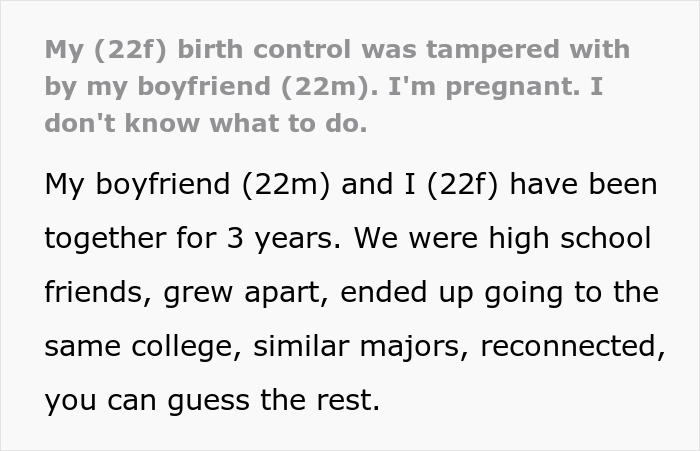

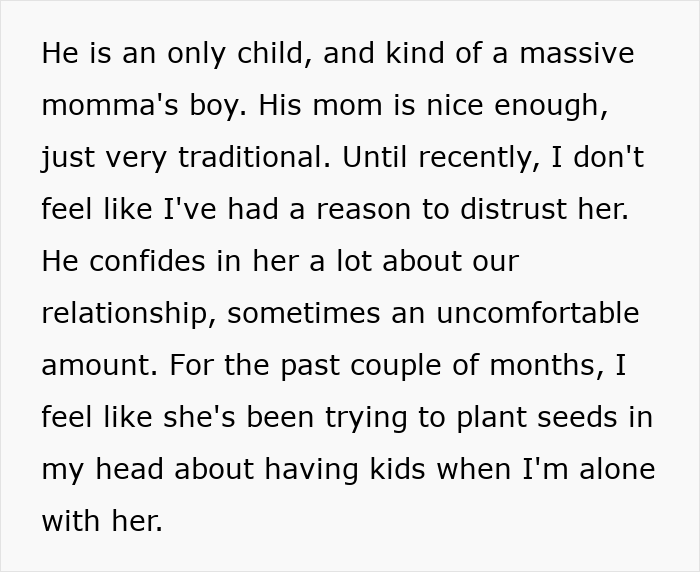

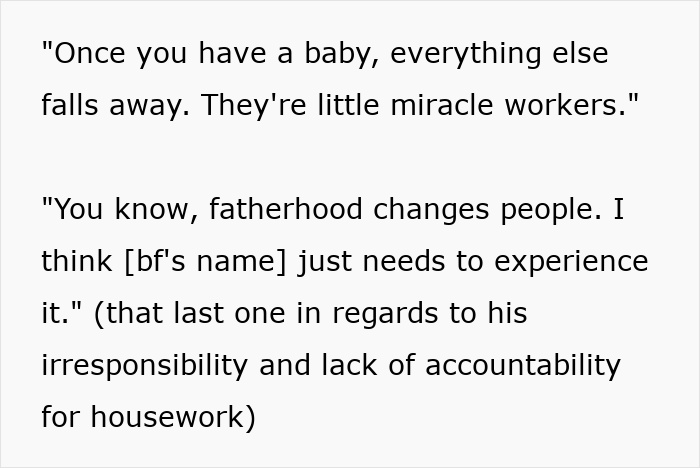
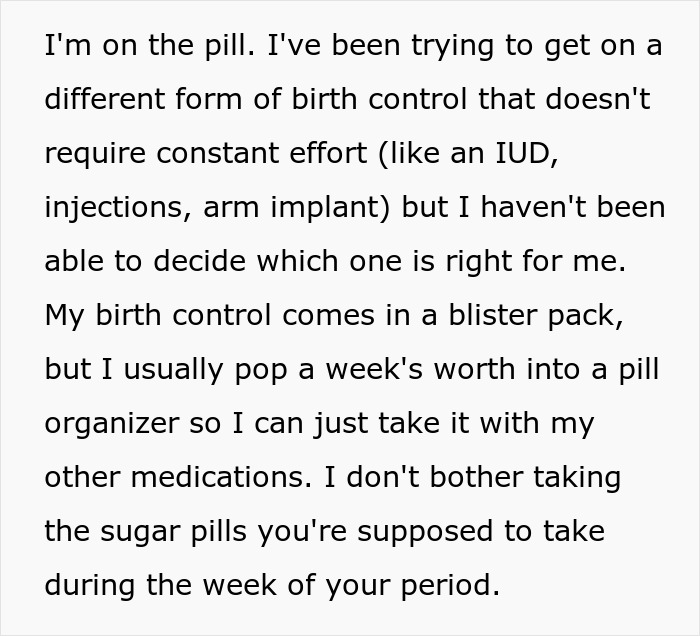

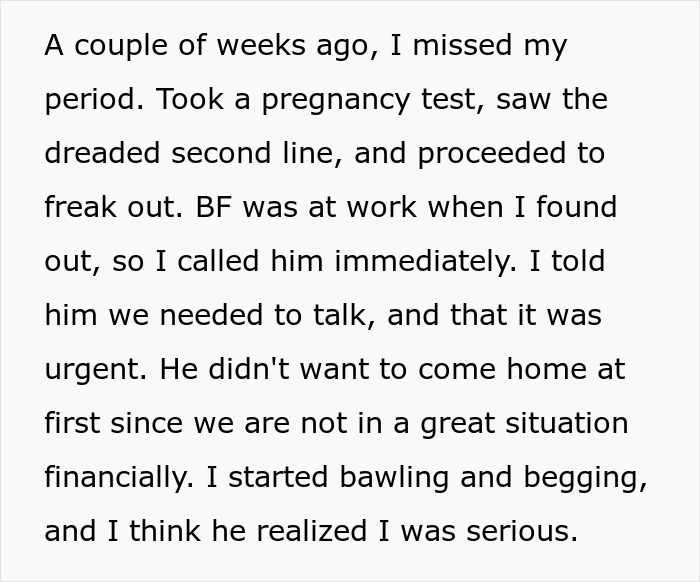


Image credits: freepik (not the actual photo)
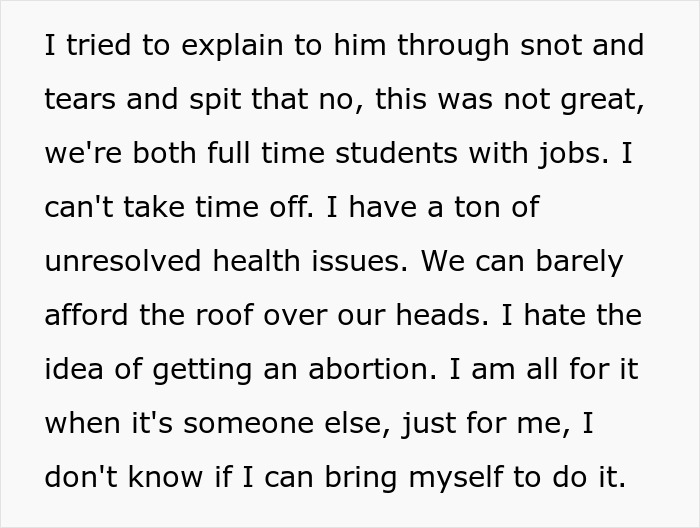
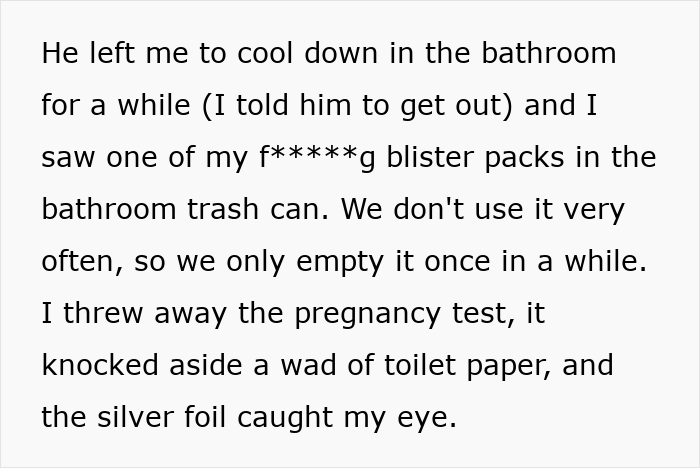
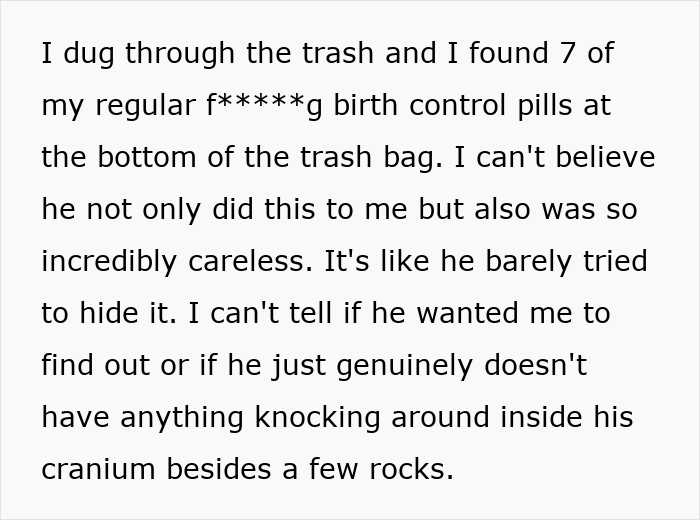

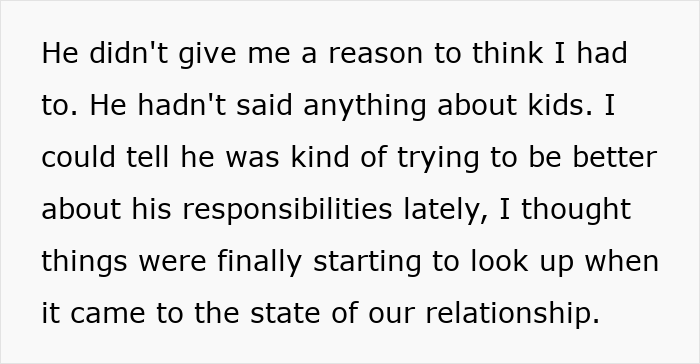

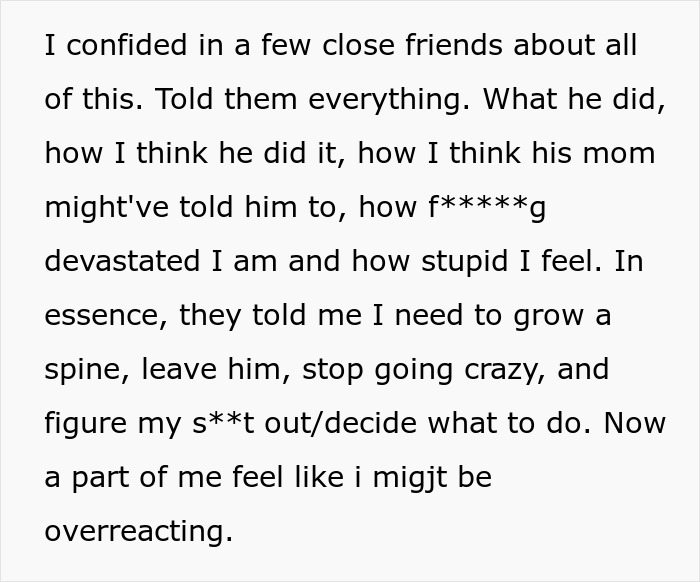
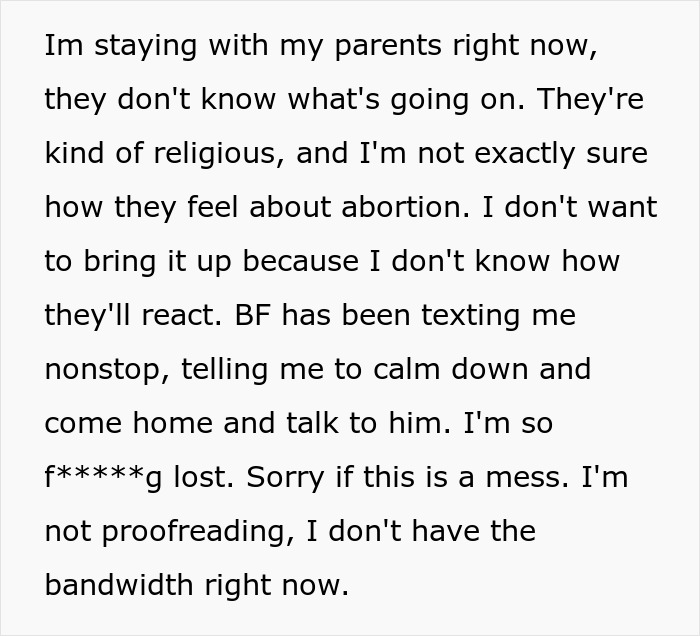
Image credits: ThrowRA7777888
How common is reproductive coercion? More women experience it than you might think

Image credits: unsplash (not the actual photo)
The choice of whether or not to have children is one of the most personal decisions anyone can make. It depends on so many factors—finances, health, emotional readiness, or simply whether someone wants to or not. And for women, who are the ones carrying and giving birth, it’s firmly within their right and bodily autonomy to decide if and when that ever happens.
That’s why behaviors that push someone into pregnancy without their consent are so damaging. These actions fall under what’s known as reproductive coercion.
The American College of Obstetricians and Gynecologists (ACOG) defines it as “behavior intended to maintain power and control in a relationship related to reproductive health.”
In practice, it can look like sabotaging contraception—hiding or destroying birth control pills, poking holes in condoms, removing a condom during intercourse—or pressuring a partner to get pregnant against their wishes. In more extreme cases, it can even involve threats of violence if the partner doesn’t comply, whether that means terminating or continuing a pregnancy.
The consequences can be devastating. In places where abortion is heavily restricted or outright banned, a pregnancy forced on someone against their will can mean being left with no choice but to carry it to term.
Sadly, this isn’t rare. A review published in BMJ Reproductive & Sexual Health reported that as many as one in four women between the ages of 18 and 45 in the U.S. who sought primary care had experienced reproductive coercion.
“Reproductive control takes away a woman’s self-worth, self-esteem, and ability to have control over her reproductive intentions,” Sam Rowlands, a visiting professor at Bournemouth University in the United Kingdom and the lead author of the BMJ review, told Vice. “She is belittled and undermined.”
Some groups are at even higher risk. Black and multiracial women, along with younger women and teenage girls, experience this type of abuse more often. One study showed that nearly one in eight girls aged 14–19 reported reproductive coercion within just the past three months of being surveyed.
What’s especially troubling is that reproductive coercion isn’t legally recognized as its own crime in many places. The acts themselves, like sexual crimes, battery, or domestic violence, are usually illegal, but the broader pattern of coercion often goes unnamed.
So, in a landscape where the law doesn’t always catch up, what can we do to support victims? According to domestic violence center CASA, one of the most important things is simply to listen without judgment. Victims need support, space to make their own decisions, and access to resources that can help them feel safe.
Healthcare providers also play a crucial role. They can educate patients about safety planning and support services, discreetly provide confidential contraception like IUDs, implants, or injections, and connect people with harm-reduction strategies.
At the heart of it, sustaining bodily autonomy matters. No one should ever lose control over such a fundamental part of their life. If you’ve experienced reproductive coercion or suspect someone else has, don’t hesitate to reach out to trusted organizations or authorities. Know that there are people and resources ready to support you or others during this time.
Readers stood by the author offering both comfort and advice
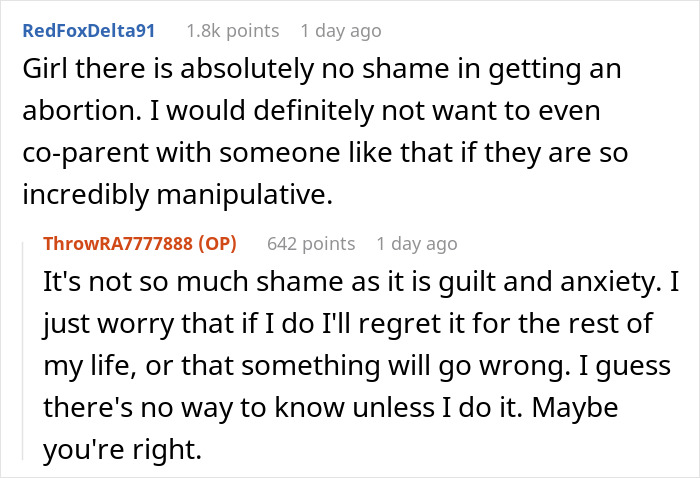
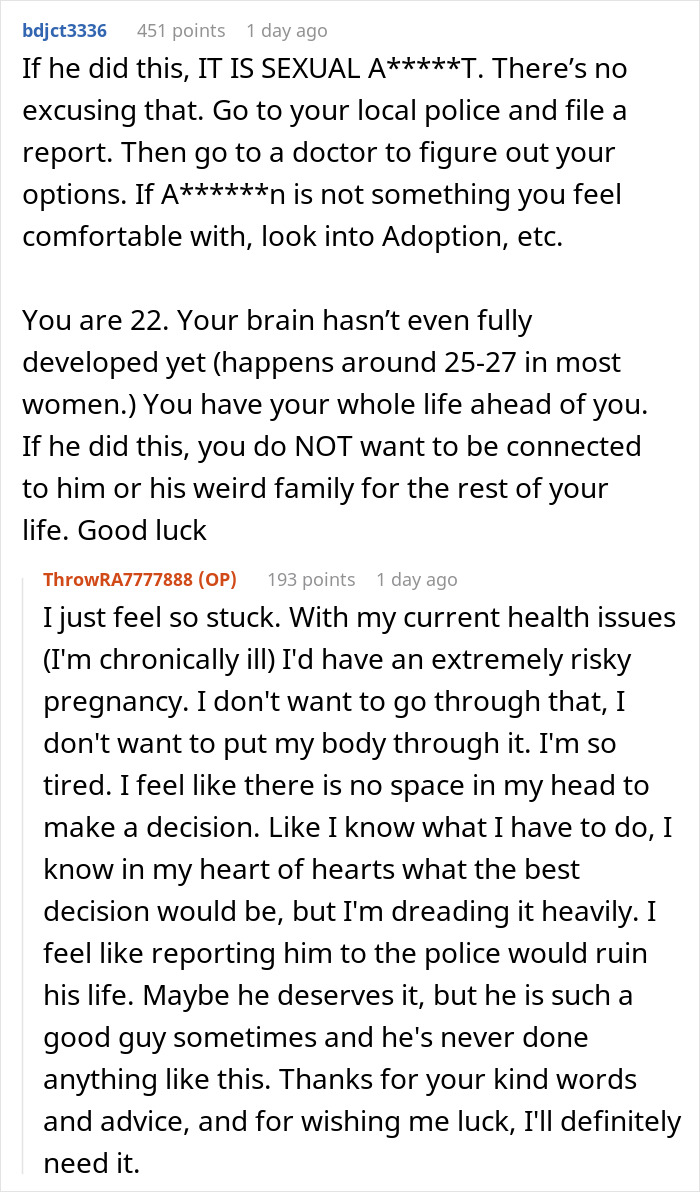
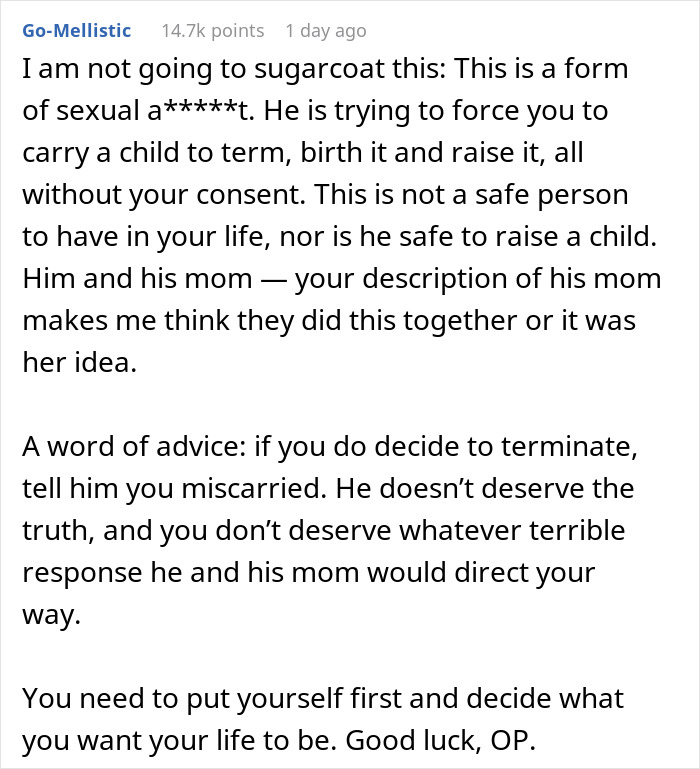

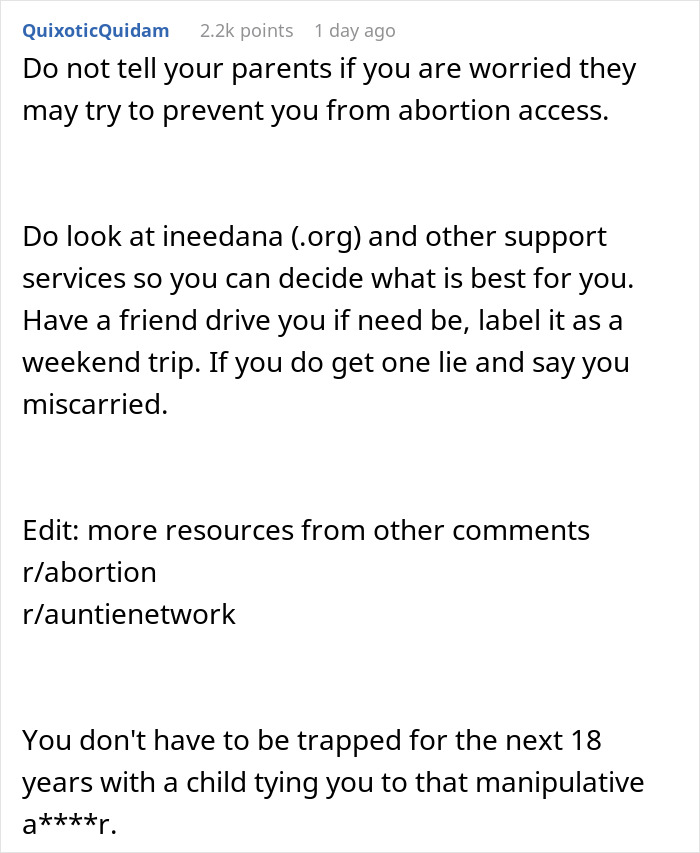


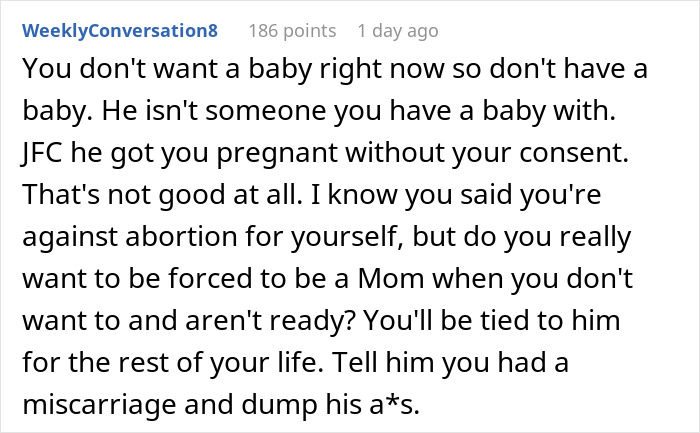
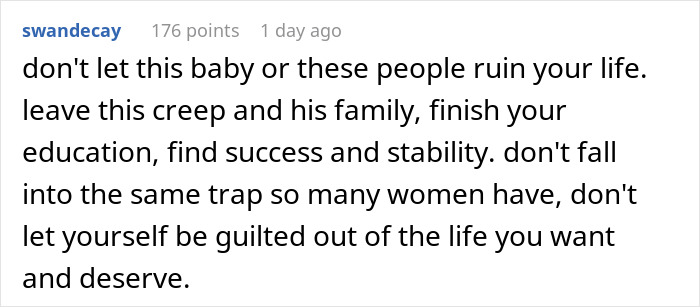

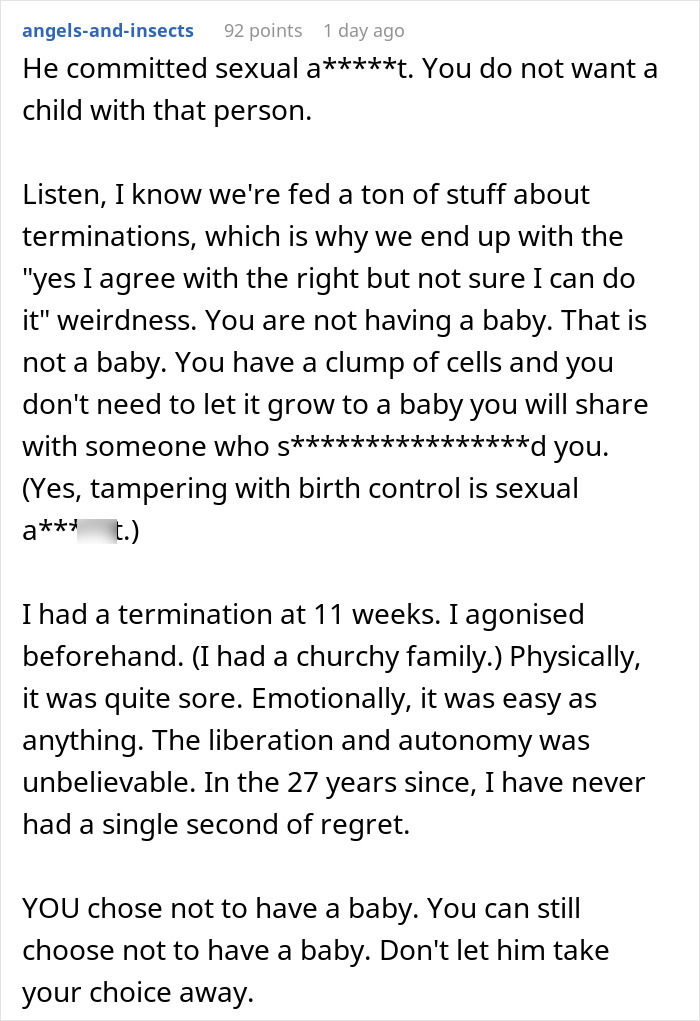
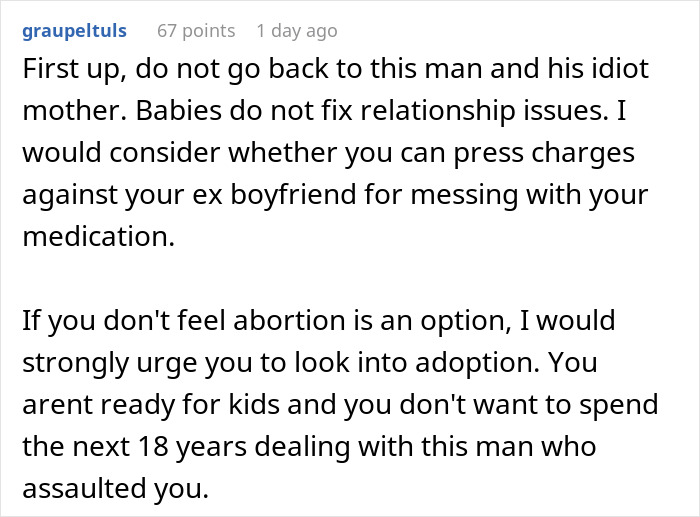

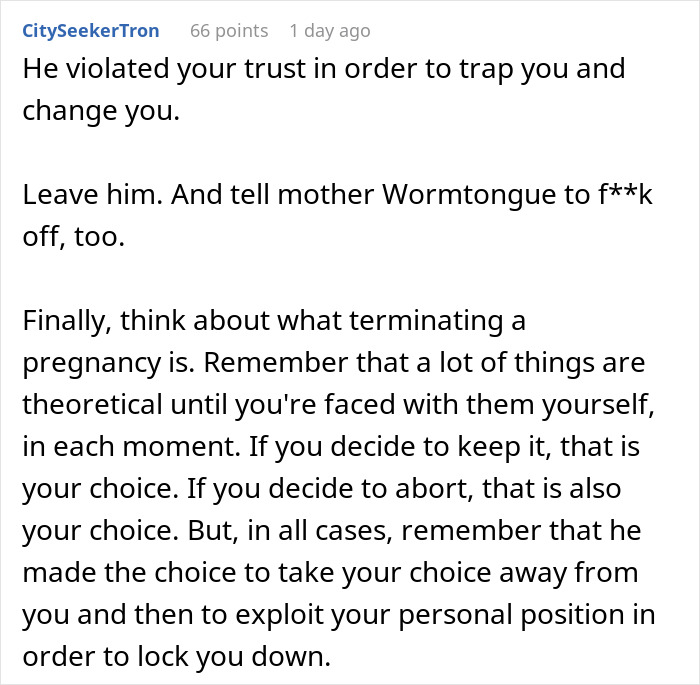
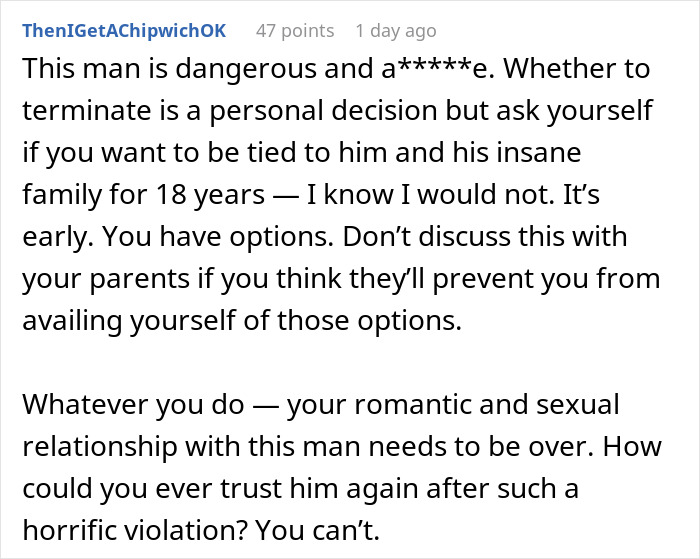
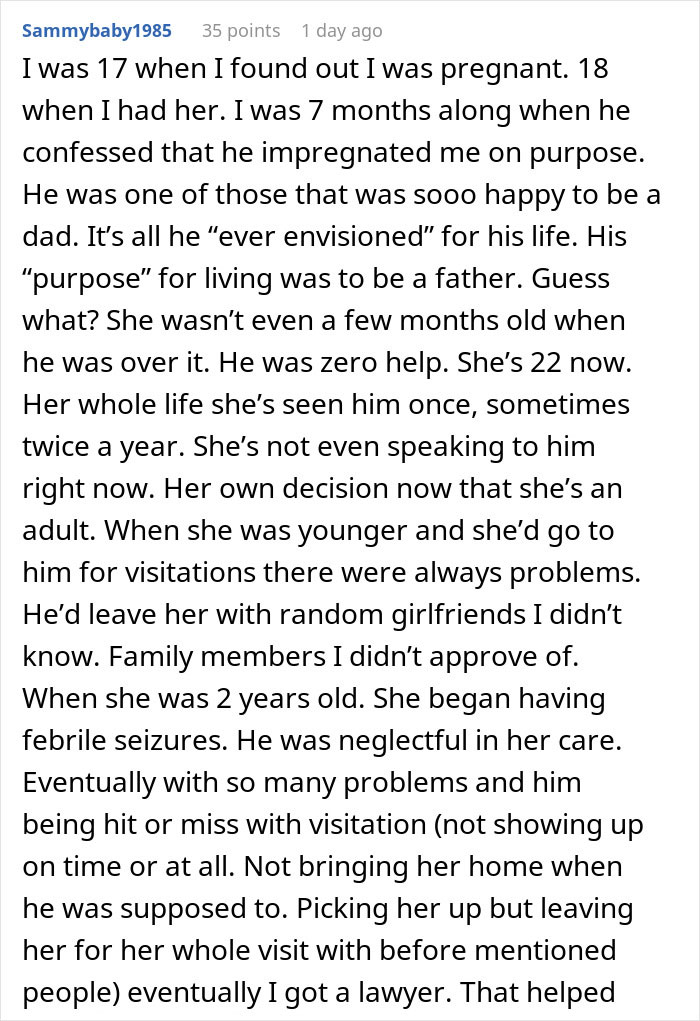
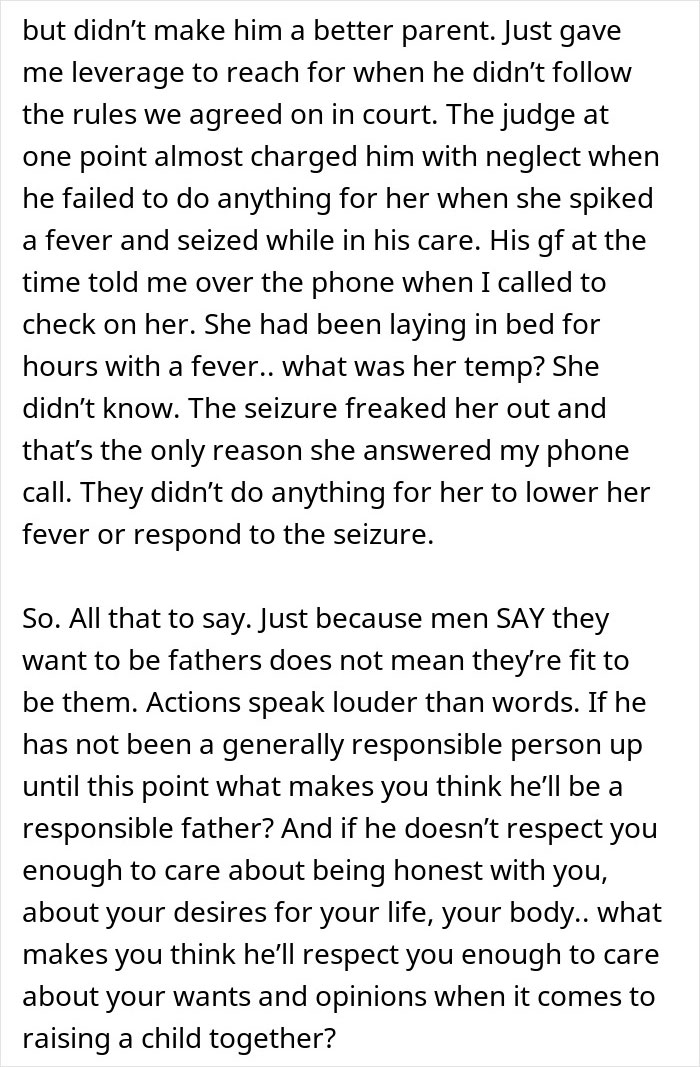
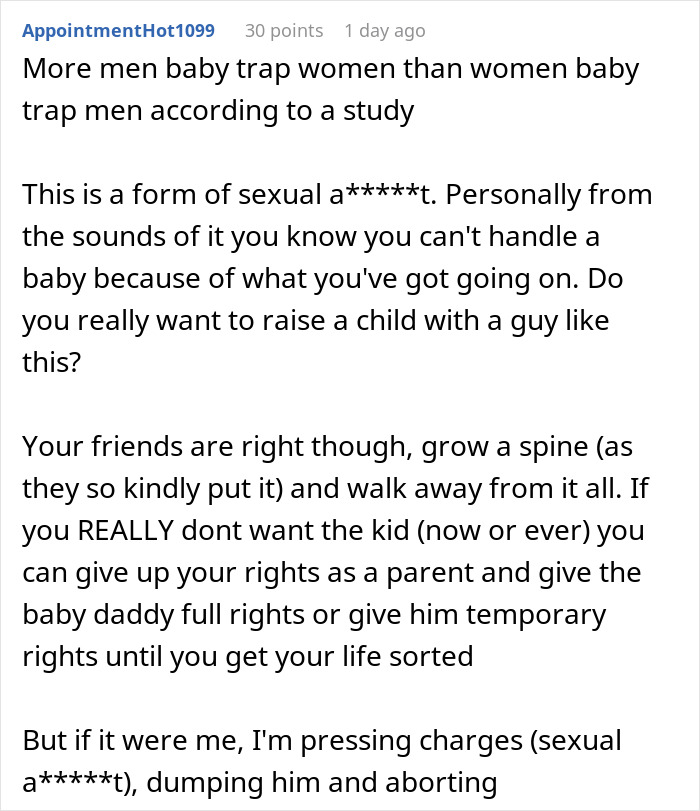
In the end, she revealed that she had decided to terminate the pregnancy
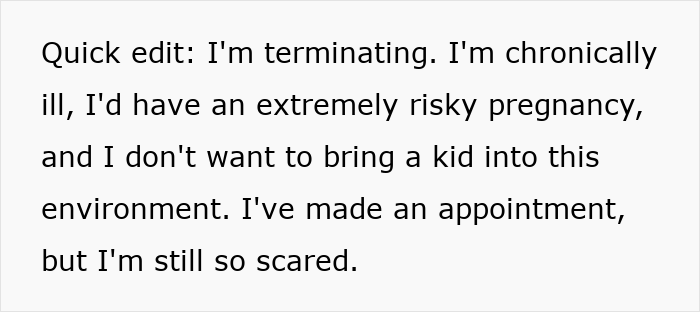
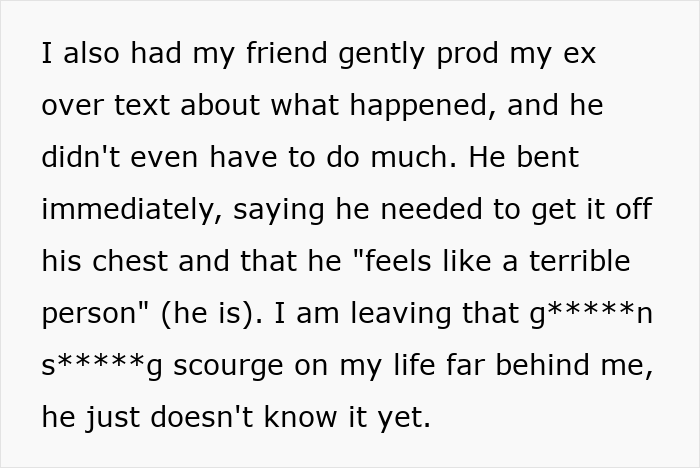
Image credits: ThrowRA7777888







